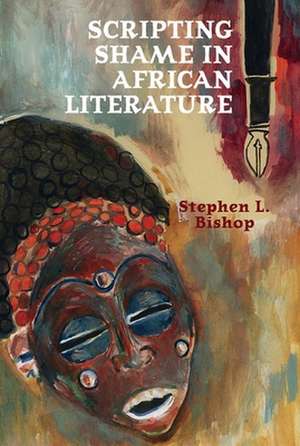Scripting Shame in African Literature
Autor Stephen L. Bishopen Limba Engleză Hardback – 28 feb 2021
| Toate formatele și edițiile | Preț | Express |
|---|---|---|
| Paperback (1) | 390.87 lei 6-8 săpt. | |
| Liverpool University Press – 29 feb 2024 | 390.87 lei 6-8 săpt. | |
| Hardback (1) | 836.41 lei 3-5 săpt. | |
| Liverpool University Press – 28 feb 2021 | 836.41 lei 3-5 săpt. |
Preț: 836.41 lei
Preț vechi: 1145.76 lei
-27% Nou
Puncte Express: 1255
Preț estimativ în valută:
160.07€ • 166.90$ • 133.03£
160.07€ • 166.90$ • 133.03£
Carte disponibilă
Livrare economică 28 februarie-14 martie
Preluare comenzi: 021 569.72.76
Specificații
ISBN-13: 9781800348431
ISBN-10: 1800348436
Pagini: 272
Dimensiuni: 156 x 234 x 18 mm
Greutate: 0.79 kg
Editura: Liverpool University Press
ISBN-10: 1800348436
Pagini: 272
Dimensiuni: 156 x 234 x 18 mm
Greutate: 0.79 kg
Editura: Liverpool University Press
Notă biografică
Stephen L. Bishop is an Associate Professor of French and the Director of International Studies Institute at the University of New Mexico.
Descriere
Shame is one of the most frequent underlying emotions expressed throughout sub-Saharan African literature, yet studies of such literature almost universally ignore the topic in favour of a focus on the struggle for independence and the postcolonial situation, encompassing a search for individual, national, and ethnic identities and questions of corruption, changing gender roles, and conflicts between so-called tradition and modernity. Shame, however, is not antithetical to these investigations and, in fact, the persistent trope of shame undergirds many of them. This book locates these expressions of shame in sub-Saharan
